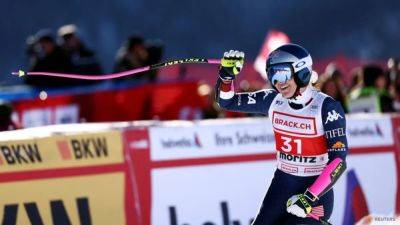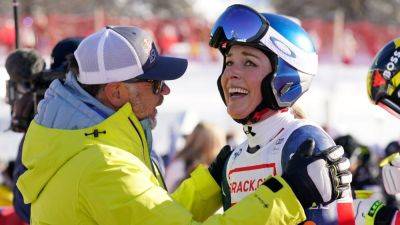The ski racing season is about to pick up speed (literally)
This is an excerpt from The Buzzer, which is CBC Sports' daily email newsletter. Stay up to speed on what's happening in sports by subscribing here.
There's a lot going on right now in alpine skiing.
Yesterday, American great Lindsey Vonn confirmed that her comeback at age 40 will begin this weekend with some warmup races in Colorado. This came a few days after Mikaela Shiffrin, the U.S. star who broke Vonn's all-time women's World Cup wins record, fell painfully short of her 100th victory when an ugly crash in Vermont left her with a badly punctured abdomen. Shiffrin said Monday she'll be out for "for a few weeks, minimum."
Also on Monday, 35-year-old Austrian great Marcel Hirscher's return from a five-year hiatus came to a crashing halt when he blew out a knee during a training run. Meanwhile, Norwegian star Aleksander Aamodt Kilde, who supplanted Hirscher as the men's overall champion in 2020 and is now engaged to Shiffrin, is sitting out the season due to complications from a bad spill last January.
All this news, and we haven't even hit the juiciest part of the season yet. That will happen Friday when Colorado's Beaver Creek resort hosts the first World Cup downhill race of the season, followed by the first super-G on Saturday (they're both men's events, and Beaver Creek will also host a men's giant slalom on Sunday).
For those who don't follow alpine skiing, the downhill and the super-G are the two most popular disciplines. These so-called "speed" events are faster, more dangerous and generally more exciting for fans than the slalom and giant slalom — known as the "technical" events because they reward precision more than raw courage (though your average weekend skier probably wouldn't have the guts to attempt






